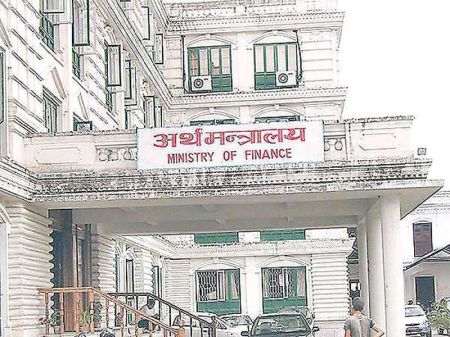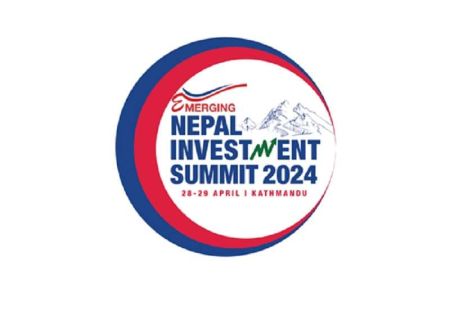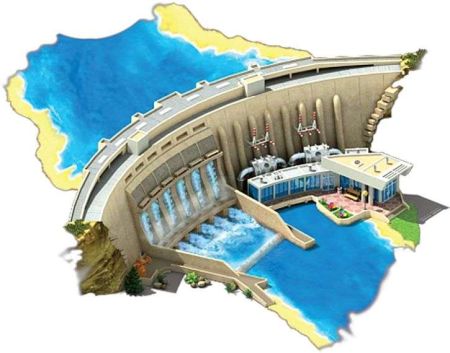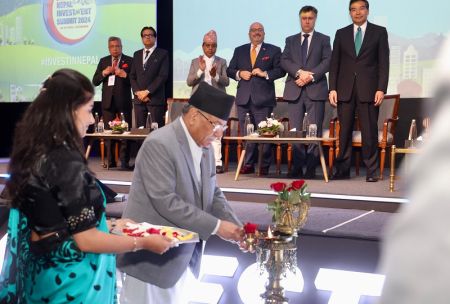
By Purushottam Ojha
Foreign investment policy and the instruments for implementation of the policy are on debate as the Ministry of Industry bought out the draft of the Foreign Investment and Technology Transfer Act (FITTA)-2013 in public domain with a view to seek the stakeholder’s opinion. The proposed act will replace its old version after 21 years of its enactment in 1992. It was however, criticised by some quarters of the academia and the business organizations, mainly the Federation of Nepalese Chambers of Commerce and Industries (FNCCI) stating that it is not forward looking and transparent rather tries to concentrate the power of regulating the investment creating a jumble of institutional set up in parallel to the existing arrangement of Department of Industry and Board of Investment. Their contentions remained that the Department of Industry will be stripped from its existing authorities to regulate the foreign direct investment as the provisions in the draft legislation provides discretionary power to the higher authorities mainly the investment council, widening space for corruption and nepotism.
Foreign direct investment is the investment that directly goes into setting up a venture or industrial establishments in a country by a company located in another country. Foreign direct investment is in contrast to portfolio investment which is a passive investment in the secondary markets of another country such as stocks and bonds.
A cursory look on the draft of the FITTA-2013 shows that it has several flaws in terms of regulations and facilitation. In some instances the legislations seems to be quite restrictive and non-transparent; proposing to take back the commitment made in WTO negotiations and allowing the regulatory authorities to decide on their discretion while there are some other provisions that neglects the universally accepted value of environment and public health concern while setting up an industrial establishment by the foreign companies or juridical persons.
The Foreign Investment and Technology Transfer Act normally aims at enhancing the competitiveness of goods and services of the industries within the country by mobilizing the foreign capital, skill and technology, enhancing employment opportunities and achieving broad based economic growth. But the proposed Act has also included the objective of facilitating the outward flow of investment from Nepal which is currently under the jurisdiction of a separate Act namely “Restriction on Outward Investment Act (ROIA)-1964”, thus raising question about the sanctity of intention of the act. There is larger consensus among various stakeholders for opening outward investment for legalizing the current practices of covert capital flight by bringing such investment under regulations but it needs to be addressed through introducing the amendment in the relevant Act and not seeking short circuiting the existing legal arrangement through the enactment of new legislations.
Second flaw that exists in the proposed legislation is the equal treatment to all kind of investment whether it is green field investment, acquisition or the portfolio investment which should be differentiated if Nepal is to maximize the beneficial investment and discourage the fly by night operators. The case in point may be the investment in share market where the investors enter into Nepali market for a brief period just to increase the share value of some companies artificially and disappear with profit and proceeds once the expected benefits are realized thus investment taking a course of gambling.
Third, the FDI Act should take a cautious approach on the provisions of intellectual property rights in context of the flexibility provided by WTO in implementation of the IPR agreements. The full fledged commitment in the use and exercise of property rights may not be afforded by Nepal as sometimes the restrictions on parallel import and compulsory licensing under IPR may limit the choices to the peril of general consumers. It should be borne in mind that the General Council of WTO has recently decided the IPR compliance date till 2021 by the LDCs with a possibility of further extension beyond, in view of difficulties faced by those countries in compliance of the WTO agreement. Hence considered view of its implications should prevail while including the intellectual property right as part of the technology transfer under the terms and conditions of foreign investment legislation.
Fourth, the movement of natural persons under mode-4 of General Agreement on Trade in Services (GATS) is a part of foreign investment particularly under the commercial presence (Mode-3 of GATS) where Nepal has put restrictions allowing the level of intra-corporate transferee up to 15 percent of the total employees of the investment company incorporated in Nepal. The proposed act has put two staged restrictions first, by requiring formal request by the employer and approval of the government and second, producing evidence of non-availability of such professionals in Nepal. This is a restrictive practice that contravenes the commitment made in WTO. Rather, there should be a simple method of allowing intra-corporate transferee up to the level of commitment made in the service trade negotiations.
The delineation of approving authorities on the basis of size of investment is another bone of contention. The Department of Industry is assigned to approve the investment of up to 2 billion rupee, Foreign Investment Council up to 2-10 billion rupee and Board of Investment above 10 billion rupee foreign investment. Many stakeholders opine that such a tiered approval will create hassles to the investors and will encourage the rent seeking behavior. Hence, the approval of foreign direct investment should be the responsibilities of the Department of Industry and the higher bodies may carry out the facilitation, monitoring and evaluation of the projects approved by the department. Similarly, the proposed act has defined ceiling of investment in services that is not consistent with the commitment made in WTO. Nepal has made a commitment to open 11 services sectors and 67 sub-sectors or categories for foreign investment. Any deviation to this will violate the previous commitments. A comprehensive list of such services sector should be annexed to the proposed act rather than going for reinventing the wheel.
The proposed act has shortened the negative list from the previous act. This is either aberration or negligence of the concerned authorities. The Act if gone through in its present form does not prevent the investors in opening the industries that produces radio-active materials or the poisonous gas or chemical, cigarettes or tobacco. Such exemptions are not normally given by any country.
The tax break proposed by the act may not be much of help in attracting investment until the overall investment climate in the country is improved. In case of Nepal, non-monetary factors like lack of adequate infrastructures, deteriorating law and order situation, over politicization of industrial workers union and increasing rent seeking behavior of the regulating authorities are more crucial in determining the level of foreign direct investment than the tax holiday. Addressing these issues would require a big push in the form of systemic and comprehensive reform rather than simply taking a piecemeal approach of upgrading a single legislation. Such an effort would require to have a broader outlook on all factors and variables that are FDI determinants and motivating factors such as improvement in business operational environment, ability to do business without hassles, promotion of competition, rule of law and economic freedom and improvement in the overall governance system within the country.
The importance of the foreign direct investment cannot be overemphasized from the perspective of least developed and developing countries where the inadequacy of capital and technology are the major causes of underperformance of the economy. It is equally true that FDI brings advances in technology, know-how, expertise and processes. It also increases the competition in the domestic economy as the domestic companies are compelled to improve their processes and products in order to stay competitive in the market. Moreover, FDI improves the quality of products, improve human resources capacity and generates employment in the host country. However, this requires formulating an appropriate policy to maximize the benefits from investment that will also provide space to a healthy growth of domestic industries.
(Ojha is former secretary at Ministry of Commerce and Supplies.)





















